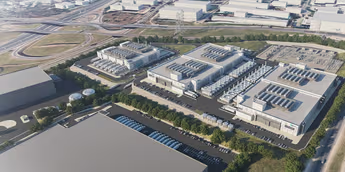Tony Elumelu Donates ₦25bn As Sanwo-Olu Launches ₦500bn “Produce for Lagos” Food Initiative

By Erewunmi Peace
In a landmark move to transform food security and reduce dependence on imported produce, Lagos State Governor Babajide Sanwo-Olu has unveiled a bold ₦500 billion initiative tagged the “Produce for Lagos” Programme. The project is designed to strengthen Nigeria’s food supply chain and establish Lagos as a guaranteed buyer of farm produce across the country.
A major highlight of the event was the announcement of a ₦25 billion donation by business magnate Tony Elumelu, Chairman of the Heirs Holdings Group and United Bank for Africa (UBA). Elumelu’s support forms part of the over ₦100 billion already committed to kickstarting the fund.
“Today is a new beginning. Lagos will no longer wait for food. We will go out to where it is produced and guarantee its off-take, transportation, and quality,” Governor Sanwo-Olu said at the launch.
What Is the “Produce for Lagos” Programme?
The initiative, driven by the newly created Lagos Food Systems and Logistics Company (LAFSINCO), aims to:
Mobilize ₦500bn in public-private funding.
Secure direct off-take deals from farmers in Nigeria’s food-producing states.
Cut food prices and inflation by 25% annually.
Reduce post-harvest losses by 40%.
Create over 4 million jobs across the agricultural value chain.
Lower national food imports by at least 60% in the next three years.
The Lagos State Government has partnered with key agencies including the Lagos State Bulk Purchasing Corporation, Eko Logistics, and private investors to ensure delivery, warehousing, cold chain distribution, and fair pricing.
High-Level Attendance
The event held in Lagos attracted prominent leaders from across Nigeria, including governors of Ogun, Niger, Benue, and the Minister of Agriculture. Also present were private sector giants, international investors, and food system experts.
“Food security is national security. What we are launching today is not just for Lagos, it is for Nigeria,” said Tony Elumelu, calling for similar models across other states.
A Model for the Future
The Lagos model is expected to become a blueprint for agricultural-commercial collaboration in Nigeria. Experts say it bridges the gap between rural production and urban consumption using a guaranteed logistics and market access strategy.
With rising inflation and insecurity affecting food availability nationwide, Lagos is positioning itself as a resilient and proactive buyer, connecting farmers directly to Africa’s largest urban market.





























































































































































































































































































































































































































































































































































































































































































































































































































































































































































































































































































































































































































































































































































